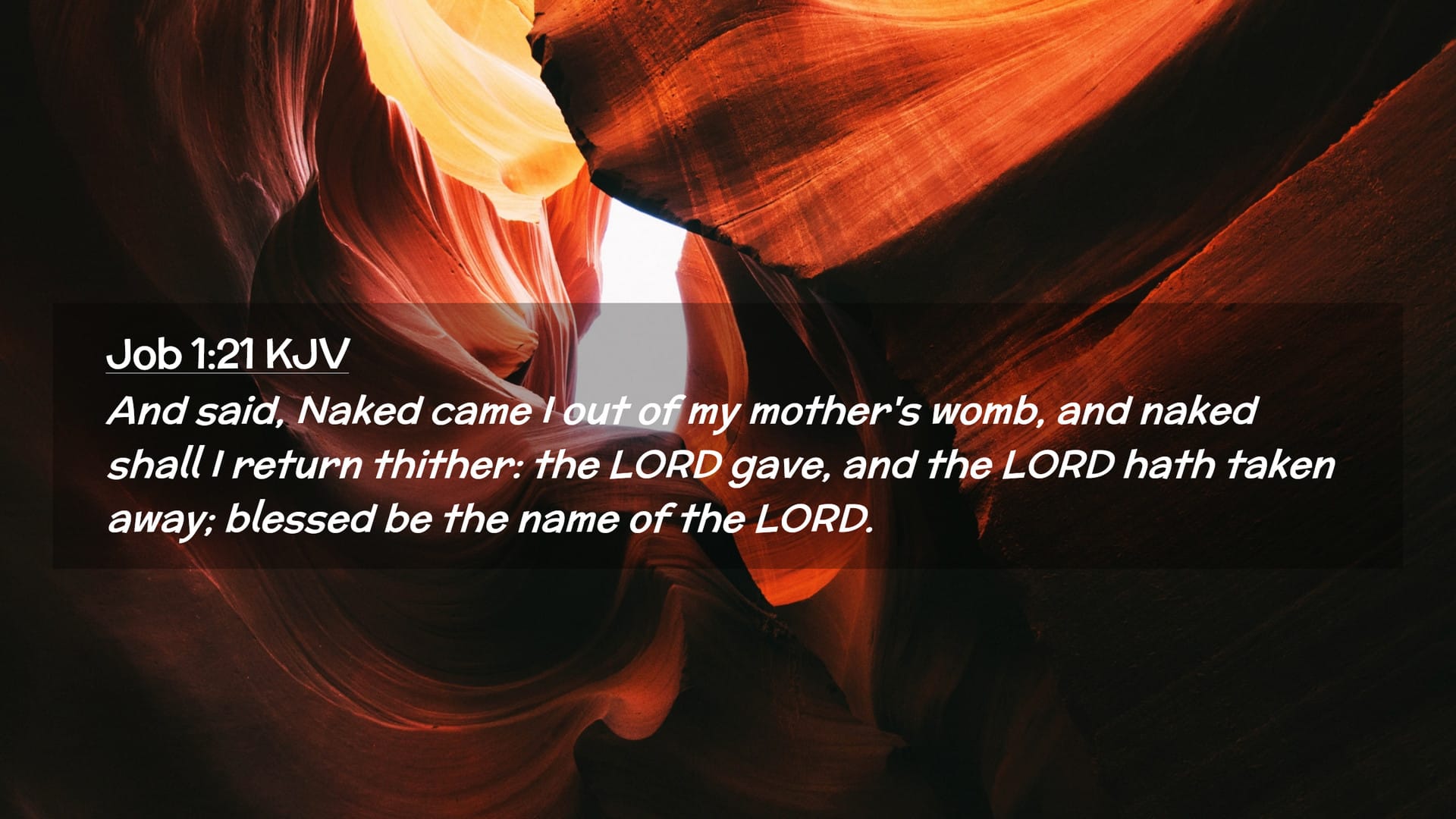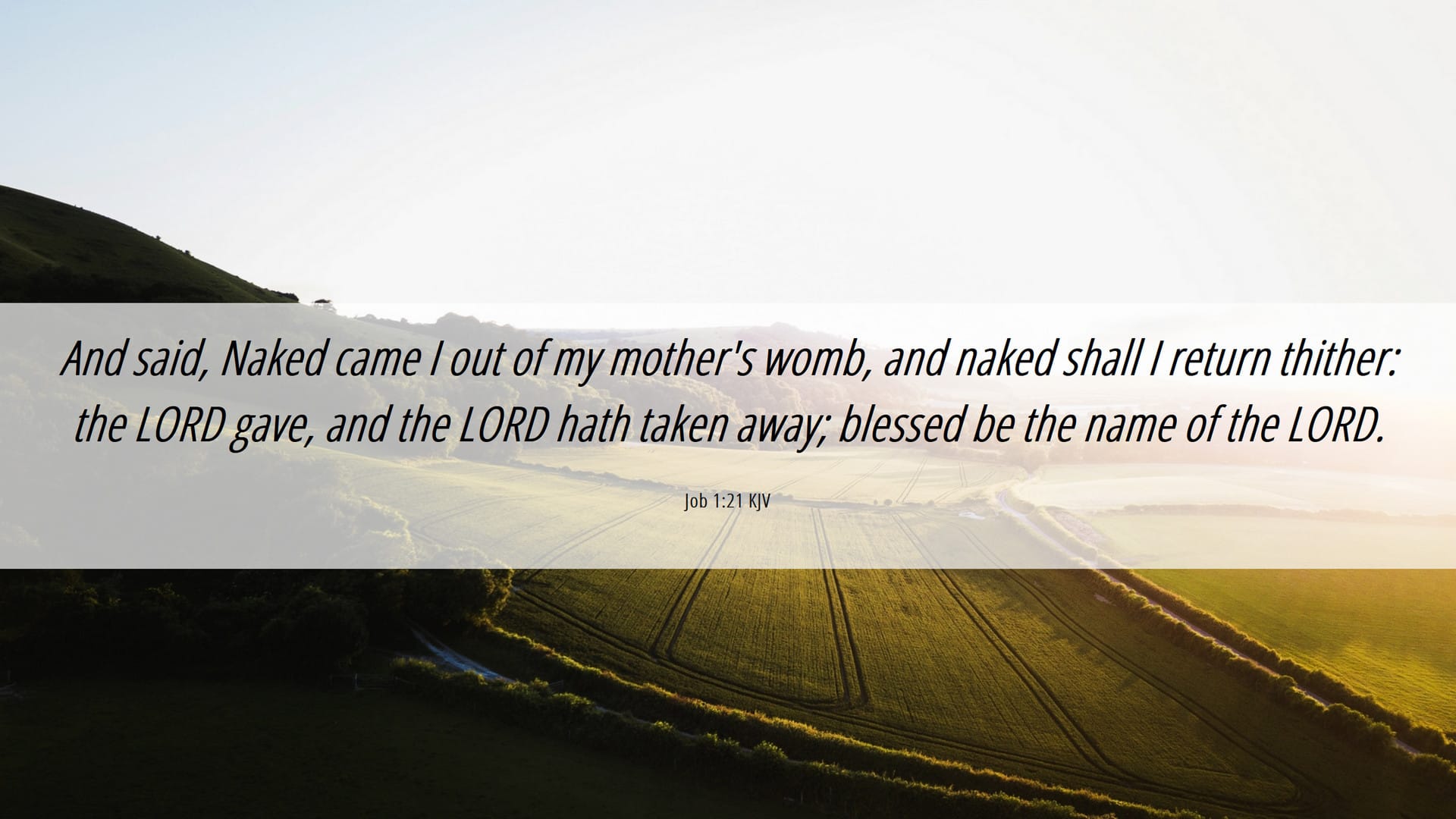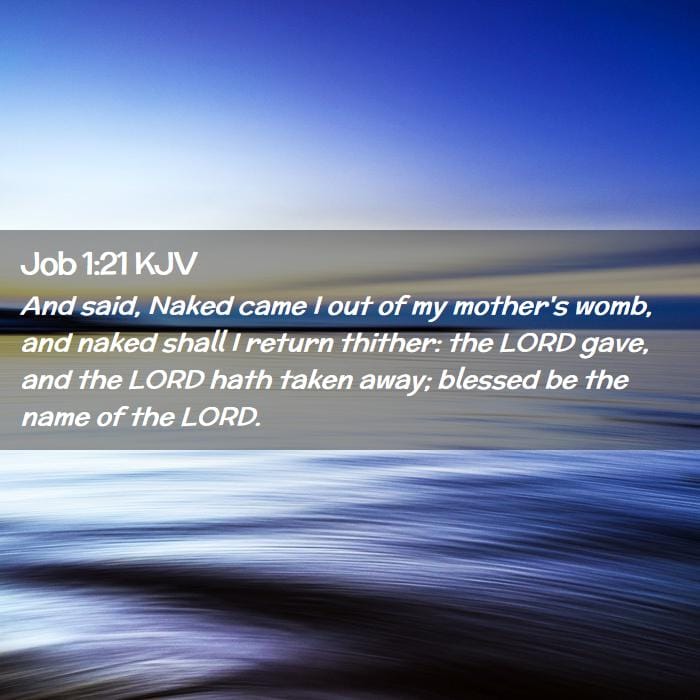Always Be Humble

Have you ever faced a moment when everything you held dear was suddenly stripped away and your plans shattered, your heart broken, and your hope tested?
In such times, where do you turn? How do you hold on to faith when life no longer makes sense?
The story of Job, one of the most powerful testimonies of faith during trials in the Bible, offers us timeless wisdom.
In Job 1:21, we hear the raw yet reverent cry of a man who has lost everything and still chooses to worship instead of waver.
📖 Job 1:21
"And said, Naked came I out of my mother's womb, and naked shall I return thither: the Lord gave, and the Lord hath taken away; blessed be the name of the Lord."
This is a verse about a declaration of deep trust, humility, and surrender. In a world filled with uncertainty, Job’s response invites us to anchor our faith in the unchanging character of God, rather than the ever-changing conditions of life.
In this Bible study, we will explore the profound truths that can transform your suffering into surrender, and your pain into praise. Whether you're navigating grief, facing unexpected setbacks, or simply seeking to grow spiritually, the lessons from Job 1:21 will speak directly to your soul.









🔍 Verse Commentary
1. “Naked came I out of my mother's womb”
This speaks of human vulnerability and dependence. Job acknowledges that at birth, he owned nothing, not wealth, not status, not even clothing. This is a powerful reminder of our humble beginnings. Everything we acquire in life is not truly ours, but entrusted to us temporarily.
2. “and naked shall I return thither”
Job affirms a deep spiritual truth: we leave this world the same way we entered, with nothing. This echoes Ecclesiastes 5:15: “As he came forth of his mother’s womb, naked shall he return to go as he came, and shall take nothing of his labour, which he may carry away in his hand.”
This line encourages a posture of humility, realizing that our possessions and accomplishments have no eternal permanence.
3. “The Lord gave, and the Lord hath taken away”
Here Job recognizes the sovereignty of God. He does not blame random chance or fate. Even in his immense suffering where Job lost his children, servants, and property, Job still sees God as in control.
This perspective requires deep faith and trust in God's character. It reminds us that everything we have is a gift from God, and He has the right to give and remove according to His will.
4. “Blessed be the name of the Lord”
This is perhaps the most profound part of the verse. Job worships even in his pain. Despite devastating loss, he chooses blessing over bitterness, and praise over complaint.
👉 It reveals the depth of Job’s righteous character and sets a powerful example of how to respond in times of trial. Praising God in the midst of suffering is never easy and it doesn’t have to come with a smile. What matters is that it comes from a heart of sincerity, faithful devotion, and reverent trust in God’s sovereignty.
🕊️ Spiritual Lessons from Job 1:21
- Humility: Just like the title says, “Always be humble.” Job recognizes he owns nothing permanently. Everything belongs to God.
- Gratitude in All Seasons: When we understand that God is the giver, we can learn to be grateful even in loss, because our relationship with God is greater than His gifts.
- Sovereignty of God: This verse teaches us to trust God's authority over every aspect of our lives, including blessings and trials.
- Worship Through Pain: Job's response is a call to worship not because of our circumstances, but because of who God is.
✅ Key Takeaway
If we truly believe God is in control, then we can say with Job:
“... the Lord gave, and the Lord hath taken away; blessed be the name of the Lord.”
Humility is not just a posture, is is a spiritual necessity for recognizing God's rightful place as the Giver and Sustainer of all things.
🙏 Prayer
Dear Lord,
I don’t understand what You’re doing right now. My heart is heavy, and everything around me feels like it’s falling apart, but like Job, I choose to say:
“Blessed be Your name.”
Even in my pain, help me trust You.
Even in my loss, help me worship You.
Even in my questions, remind me that You are still good.
Hold me close, Lord.
You gave. You have taken away.
I believe You are still with me and that’s good enough.
Amen.